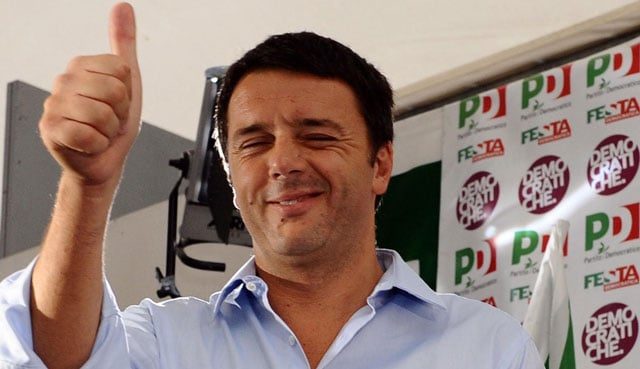After a long and drawn-out ‘staffetta’, or handover, Matteo Renzi has finally torn the baton of prime ministership from the reluctant grasp of Enrico Letta.
The ruthless disposal of the former prime minister followed a meeting on 13th February between members of the centre-left Democratic Party (PD), orchestrated by Mr Renzi himself. Party votes showed an almost unanimous withdrawal of support for Mr Letta, leaving him isolated and bringing the power struggle between the two men to a head.
Last week, the handover was completed as Giorgio Napolitano, the country’s president, officially asked Renzi to form the country’s next government, opening the lane for Italy’s youngest prime minister and the third administration in a year.
Despite the fact that his parliamentary experience is limited to running Florence as mayor, Renzi’s dynamism, communication skills and apparent dedication to reform have propelled him into the centre of the national political arena.
Dressing casually and travelling to and from meetings on a bicycle, the charismatic ‘outsider’, often compared to Tony Blair, personifies political change. As he left the presidential palace after his nomination, the 39-year old immediately expressed his commitment to a series of – in his own words – ‘hugely ambitious’ plans of economic and electoral reform. His call to completely scrap and transform the existing political establishment within his first 100 days in office has earned him the nickname ‘Il Rottamatore’ – The Scrapper.
Is this the start of a winning streak for Italy? Or has Renzi’s rush to power put him at risk of disqualification?
Mr Renzi’s nomination as the new Italian prime minister is contentious to say the least. He has always enjoyed high popularity ratings, and has been described as ‘a breath of fresh air in Italy’s discredited political system’.
But his choice of route into the Palazzo Chigi, the official residence of the Italian prime minister, has been highly criticised for being undemocratic. Most Italians object to having a leader thrust upon them, especially during such economic and political turbulence and Renzi, who has entered office without public votes and with bloody hands, is no exception.
Defending himself, he said ‘he who is in politics has the duty of taking a risk sometimes’. Renzi maintains that the ‘palace coup’ he directed to oust Letta from parliament, despite putting not only his own popularity at risk but also that of the party, was a necessary gamble to open a new phase of Italian politics and to save the country ‘from the quagmire’.
Now Renzi has a grasp on the baton, the ball is in his court and the pressure is on to overcome the webs of political resistance that have previously undermined economic reform in Italy. Will he fare any better than his predecessor? Only time will tell.






